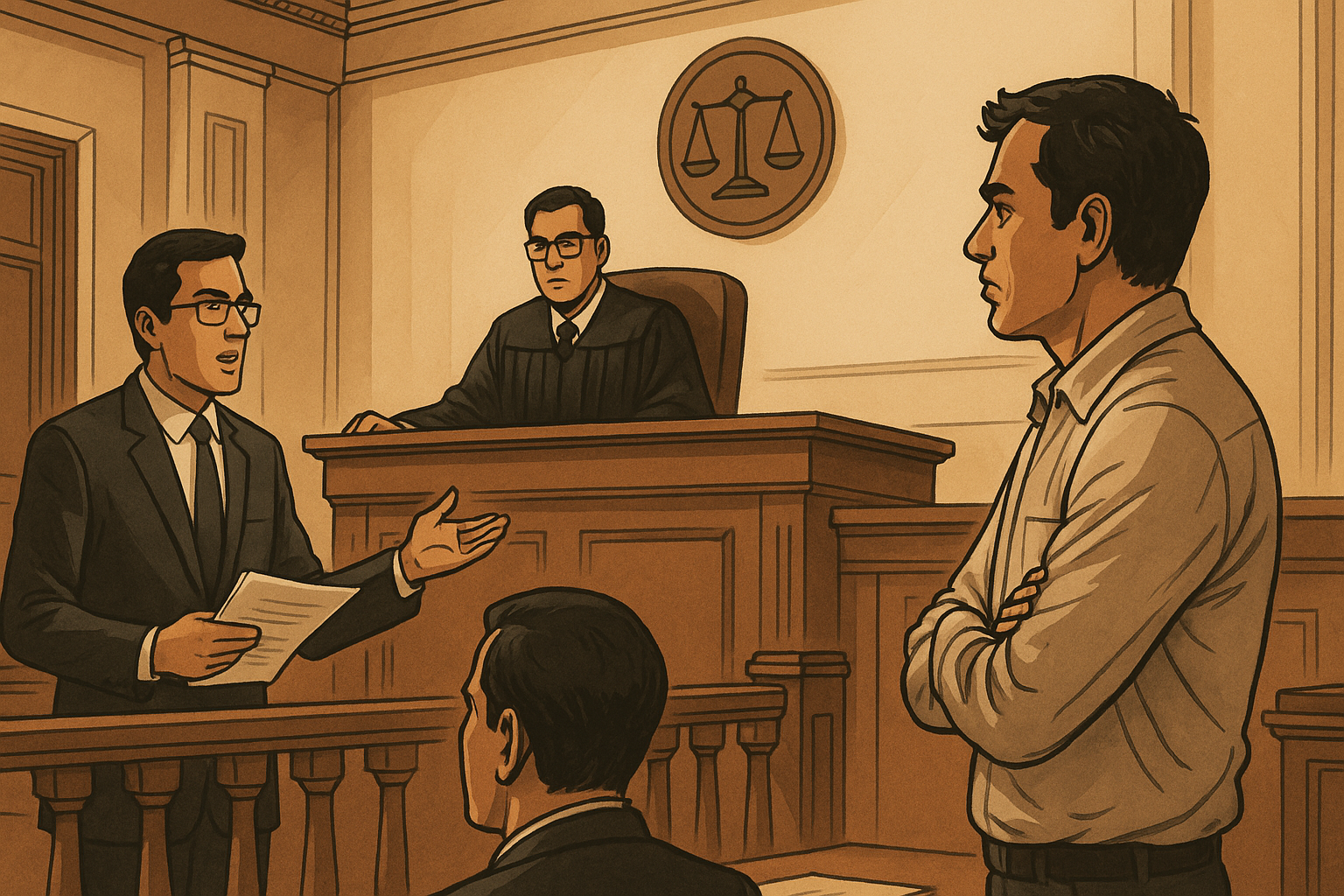Simplified Explanation of the Judgment
In this case, a registered contractor challenged an order of permanent debarment issued by the Executive Engineer of the Building Construction Department, Darbhanga. The petitioner was previously registered under Class II category and his license was valid until October 2018. However, the debarment order dated 17 December 2018 (Annexure P-9) not only rendered him ineligible for renewal but also effectively blacklisted him permanently from future government contracts.
The dispute arose from a terminated works contract related to the renovation and beautification of the Chandradhari Museum in Darbhanga. Since the contract termination is under arbitration before the Bihar Public Works Contracts Disputes Arbitration Tribunal, the contractor argued that blacklisting him during pendency of that proceeding was unjust.
Three major legal objections were raised by the petitioner:
- The Executive Engineer lacked the authority under the Bihar Contractor Registration Rules, 2007, to issue a debarment order.
- The order of debarment was passed without serving any show-cause notice or providing an opportunity for hearing.
- Permanent blacklisting was disproportionate and violated principles laid down by the Supreme Court.
The Patna High Court examined the Bihar Contractor Registration Rules, 2007, and found that under Rule 11(c), only the Registration Officer—defined as an officer not below the rank of Chief Engineer—has the authority to suspend or blacklist a contractor. In this case, the Executive Engineer was not the competent officer, which rendered the order without jurisdiction.
Furthermore, the Court emphasized that even if blacklisting were permissible, it must follow principles of natural justice. Relying on the Supreme Court’s decision in M/s Kulja Industries Limited v. Chief General Manager, W.T. Project, BSNL [(AIR 2014 SC 9)], the Court noted that blacklisting impacts a person’s right to do business with the government. Hence, a fair hearing is essential before such penal action can be imposed.
The Supreme Court had held that while blacklisting is an inherent power of any contracting authority, it must be exercised reasonably and only after the affected party is given an opportunity to be heard.
In conclusion, the Patna High Court quashed the debarment order on the grounds of lack of authority, violation of natural justice, and failure to follow proper procedure. The writ petition was allowed.
Significance or Implication of the Judgment
This decision reinforces the importance of procedural fairness in administrative decisions, particularly those that can affect a person’s livelihood. The ruling:
- Limits arbitrary powers of junior officers in blacklisting contractors.
- Affirms the constitutional guarantee of fair hearing and due process.
- Protects contractors from vindictive or premature punishment while disputes are pending before arbitration.
For government departments, it serves as a reminder to follow proper protocol and jurisdiction under applicable rules, ensuring that disciplinary actions do not become legally vulnerable.
Legal Issue(s) Decided and the Court’s Decision
- Whether the Executive Engineer was competent to issue a debarment order?
❌ No. Only officers of Chief Engineer rank or above are competent under Rule 11(c) of the 2007 Rules. - Was the debarment order valid without notice or hearing?
❌ No. It violated principles of natural justice. - Was permanent blacklisting lawful under the circumstances?
❌ No. It was disproportionate and contrary to binding Supreme Court precedent.
Judgments Referred by Parties
- M/s Kulja Industries Limited v. Chief Gen. Manager, W.T. Proj., BSNL and Others, AIR 2014 SC 9
Judgments Relied Upon or Cited by Court
- Erusian Equipment & Chemicals Ltd. v. State of West Bengal, (1975) 1 SCC 70
- Southern Painters v. Fertilizers & Chemicals Travancore Ltd., AIR 1994 SC 1277
- Patel Engineering Ltd. v. Union of India, AIR 2012 SC 2342
- B.S.N. Joshi & Sons Ltd. v. Nair Coal Services Ltd., AIR 2007 SC 437
- Joseph Vilangandan v. The Executive Engineer, PWD, AIR 1978 SC 930
Case Title
Universal Interior Decorator v. The State of Bihar & Others
Case Number
CWJC No. 3683 of 2019
Citation(s)
2020 (1) PLJR 62
Coram and Names of Judges
Hon’ble Mr. Justice Rajeev Ranjan Prasad
Names of Advocates and Who They Appeared For
- For Petitioner: Mr. Manish Sahay and Mr. Anil Kumar Sinha
- For State: Mr. Uday Prasad (AC to GP-22)
Link to Judgment
https://patnahighcourt.gov.in/vieworder/MTUjMzY4MyMyMDE5IzUjTg==-1Bf21iGF3wU=
If you found this explanation helpful and wish to stay informed about how legal developments may affect your rights in Bihar, you may consider following Samvida Law Associates for more updates.








